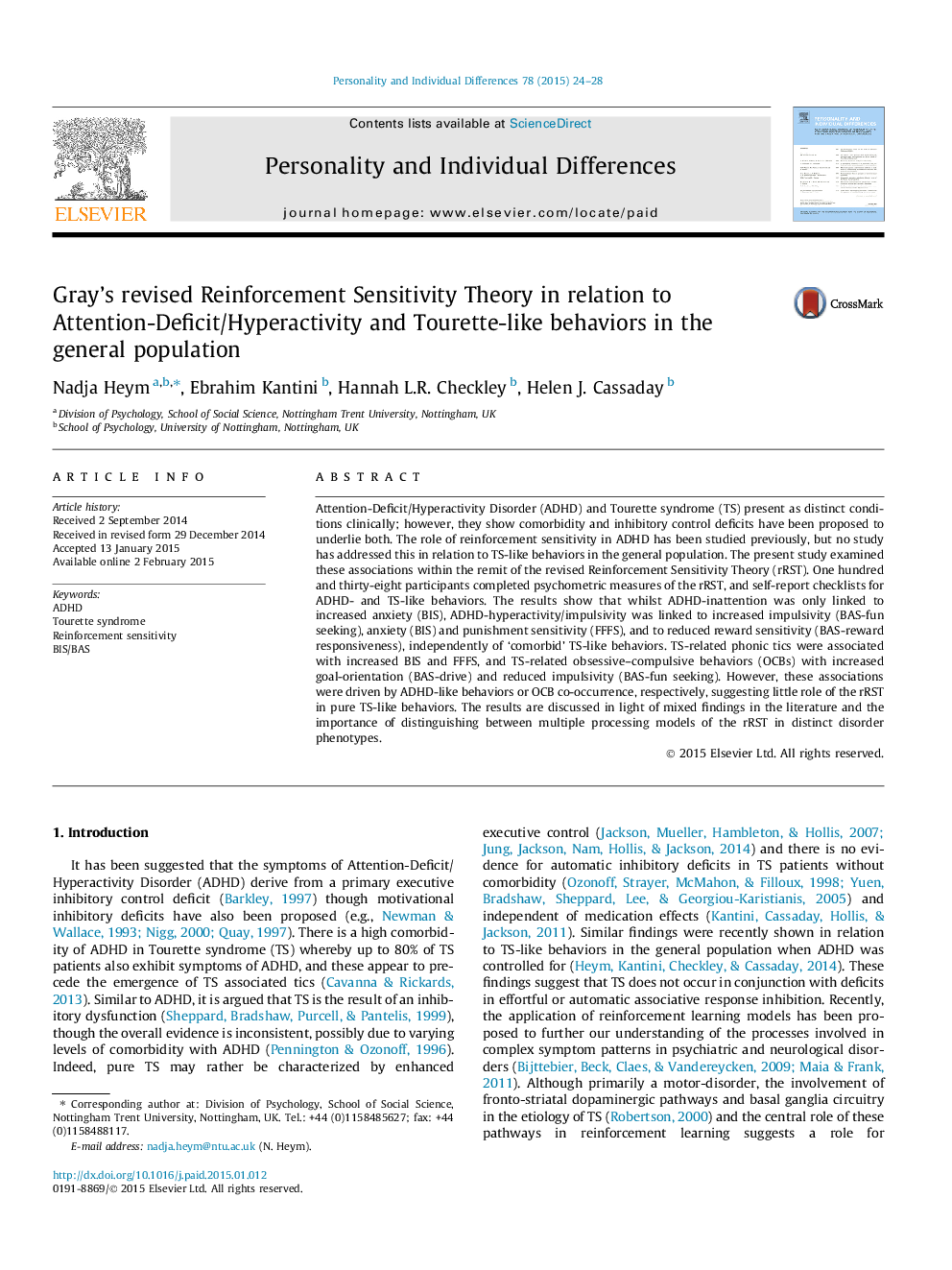| Article ID | Journal | Published Year | Pages | File Type |
|---|---|---|---|---|
| 890174 | Personality and Individual Differences | 2015 | 5 Pages |
•The study examined ADHD- and Tourette(TS)-like behaviors in relation to Gray’s rRST.•ADHD-Hyper/Imp. was linked to increased BAS-FUN, BIS and FFFS but reduced BAS-REW.•ADHD-inattention was linked to increased BIS, independent of TS dispositions.•TS-like behaviors were linked to reduced BAS-FUN but increased BAS-DR, BIS and FFFS.•TS associations are likely due to ADHD or OCD comorbid dispositions.
Attention-Deficit/Hyperactivity Disorder (ADHD) and Tourette syndrome (TS) present as distinct conditions clinically; however, they show comorbidity and inhibitory control deficits have been proposed to underlie both. The role of reinforcement sensitivity in ADHD has been studied previously, but no study has addressed this in relation to TS-like behaviors in the general population. The present study examined these associations within the remit of the revised Reinforcement Sensitivity Theory (rRST). One hundred and thirty-eight participants completed psychometric measures of the rRST, and self-report checklists for ADHD- and TS-like behaviors. The results show that whilst ADHD-inattention was only linked to increased anxiety (BIS), ADHD-hyperactivity/impulsivity was linked to increased impulsivity (BAS-fun seeking), anxiety (BIS) and punishment sensitivity (FFFS), and to reduced reward sensitivity (BAS-reward responsiveness), independently of ‘comorbid’ TS-like behaviors. TS-related phonic tics were associated with increased BIS and FFFS, and TS-related obsessive–compulsive behaviors (OCBs) with increased goal-orientation (BAS-drive) and reduced impulsivity (BAS-fun seeking). However, these associations were driven by ADHD-like behaviors or OCB co-occurrence, respectively, suggesting little role of the rRST in pure TS-like behaviors. The results are discussed in light of mixed findings in the literature and the importance of distinguishing between multiple processing models of the rRST in distinct disorder phenotypes.
